The Baese dialect is a linguistic treasure that hides an inestimable wealth of nuances, colourful expressions and a thousand-year history. It is still a living idiom, used by the local population in many daily activities and capable of conveying deep emotions.
Learning it seems an impossible task: everyone knows it, few speak it and hardly anyone understands it. For those who do not live in the area, the Barese dialect can even appear as an enigma, a labyrinth of sounds and words that escape immediate comprehension.

Words, sounds and traditions: the Baesei dialect is a world to explore
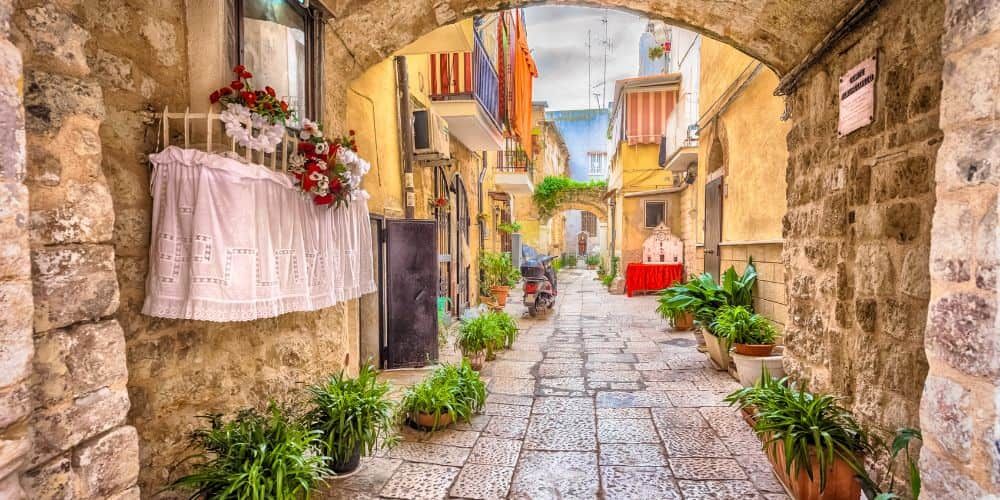
The local idiom called Barese dialect, with its liveliness and complexity, is almost incomprehensible to any outsider who hears it. With its mix of Arabic, Spanish, French, Latin and Greek influences, the use of this picturesque language makes for a unique and indistinguishable identification and belonging to this restricted geographic area, but requires a few simple rules in order to understand it and especially to speak it.
Listening to a speech in Barese dialect usually brings a smile to one's face and immediately brings to mind a hint of the Mediterranean. It is linked to a cultural heritage that is passed down from generation to generation, preserving its charm and the link to the land of origin, with all its centuries-old customs and traditions.
Today, therefore, everyone is at school for Barese dialect!
Learning the basics of Barese dialect
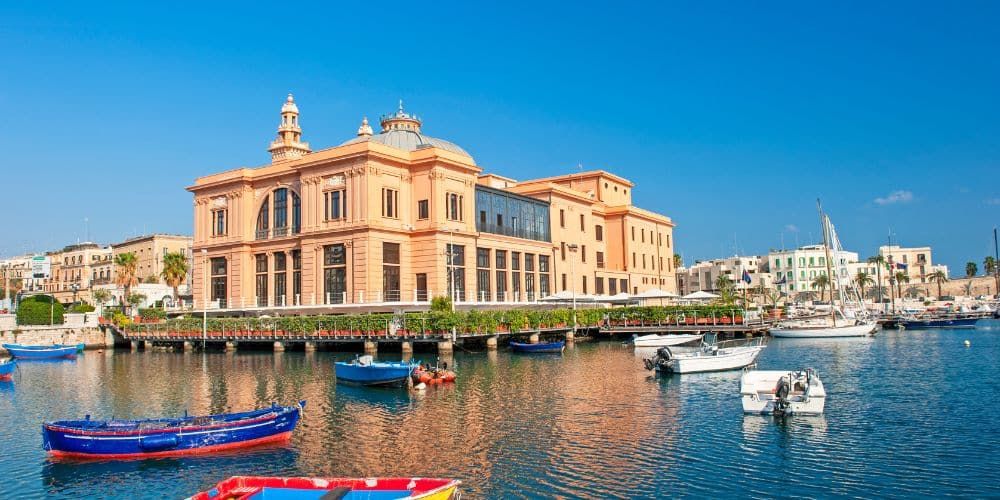
The Barese dialect of the city of Bari i is spoken basically in the city of Bari and in the province. The name of the city it is pronounced with vocal opened and descending. The doubling of the consonants is a must, as well as the last vocal or part of a word is always mute. The vocals, instead, are pronounced as in a descendent curve and they rise again through the following consonant.
In the specific case of the word Bari, the letter “b” becomes automatically doubled, the “a” falls as if it was on a rollercoaster going again up in order to give space to the “r” and, as confirms the general rule, the last vocal is silent. Therefore, the final result will be Bbàr. The peculiarity and folklore of this dialect is that it changes according to the distance from the epicentre of the city, assuming subtle or significant shades and characteristics.
We go through the Apulian hinterland, for example, at 20km far from the old city, in the small village of Sannicandro. Here, the typical expression of the dialect “ce ué” literally translated as “what do you want” and used in slang with the intention of making the question: “how can I help you”, it completely transforms the diphthong “ué” becoming “ce dàie”.
Discovering Bari: walking or Bike TourThe variants of the Bari dialect in the Apulian territory
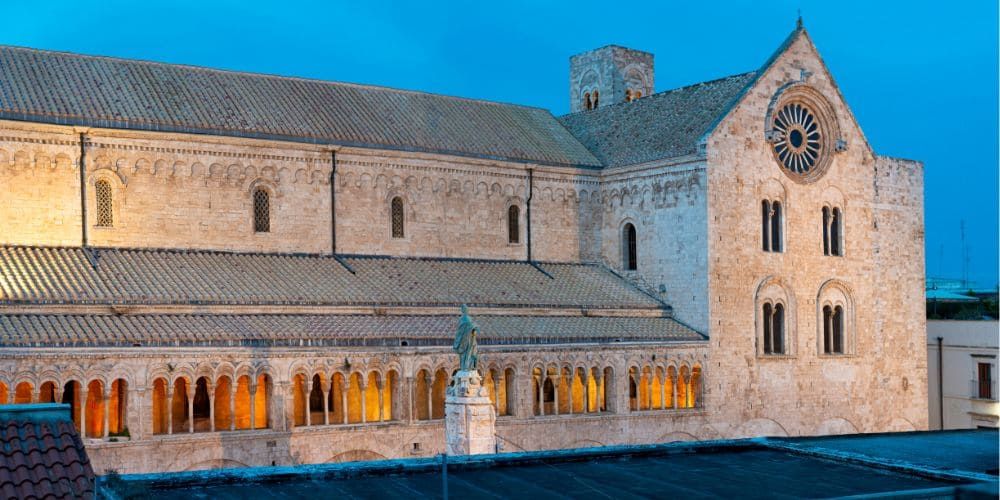
As you can see, few kilometres can change intonation, words or even expressions and way of saying. A clear example of this dialectal variation is the small town of Bitonto, where we consider a common reinforcing expression used for underlining the wiling of not repeating again the same concept: it is expressed in the Barese dialect as “com t ua disc” (literally translated as “how do I have to tell you”), but it changes completely since the vocal “o” is pronounced as “au”, the vocal “a” becomes a diphthong “eu” with the final result of: “Caúme te u àgghie a ddóice?”.
The shades and phonetic variations of this wonderful language are endless as well as are copious the small cities in the province of Bari that with their history, culture and tradition donate unique and extraordinary experiences. The moments that characterise this uniqueness are the celebrations in honour of the Saints Patrons where the entire town is engaged on this day.
Adelfia: a beating heart of Apulia
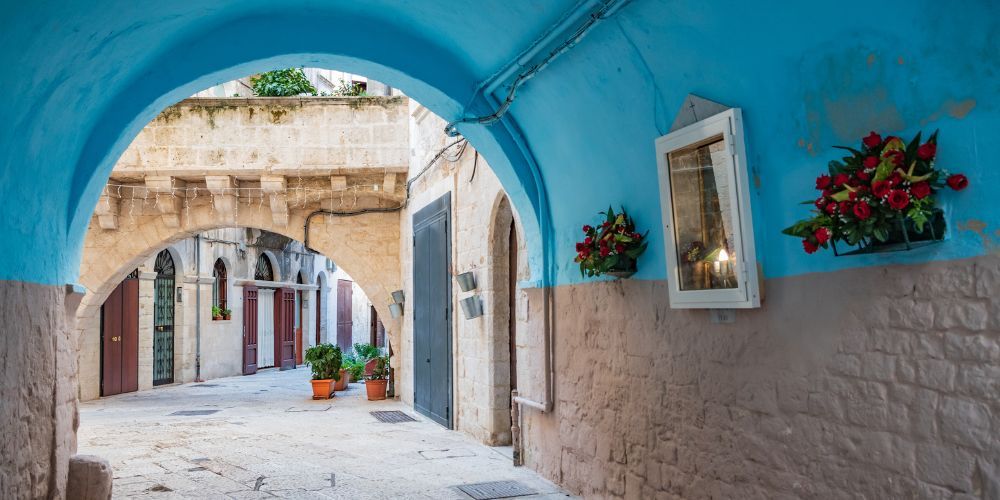
Master of all the Saint Patrons’ celebrations is the small town of Adelfia, far 13 km from Bari and located just at the end of the first slopes of the central Murge plateau.
In this area, born from the merger of two ancient historic city centres, it is possible to attend the fireworks show in the month of November in honour of the Saint Trifone, the Madonna della Stella celebration during Easter, the celebration of the Saint Patron Vittoriano during the last Sunday of the month of July or just simply enjoy a lovely night in one of the many locals that there are in this town.
Situated in a historic location modernised in a contemporary style, the Namasté coffee&lounge bar is definitely an original pub where to spend a pleasant night. This casual and lively location will surprise you for its warmth whether you want to stop for a coffee in the morning or for a beer in the evening while listening to live music.
Barese dialect: a passport to discovering Apulian traditions
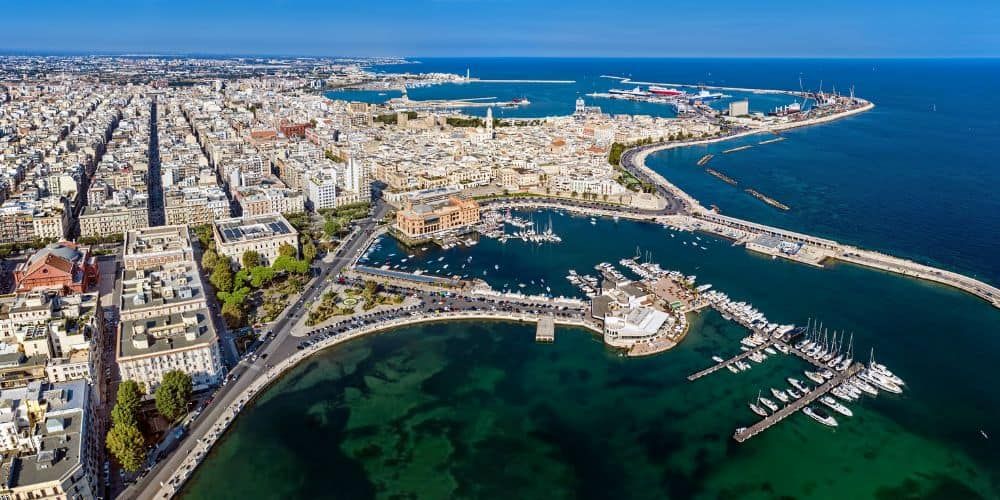
Barese dialect is just one of the many dialects that enrich the linguistic landscape of Apulia. Every patron saint's festival, like the one in Adelfia, becomes an opportunity to celebrate not only the patron saint, but also the identity of a people tied to their land. Each province has its own variants that express the soul of a people that is strong and proud of its roots.
Getting to know the Barese dialect can be an opportunity to discover a wonderful region and a culinary tradition rich in authentic flavours. Start living Bari as a local right now!
About the author
Written on 30/08/2018

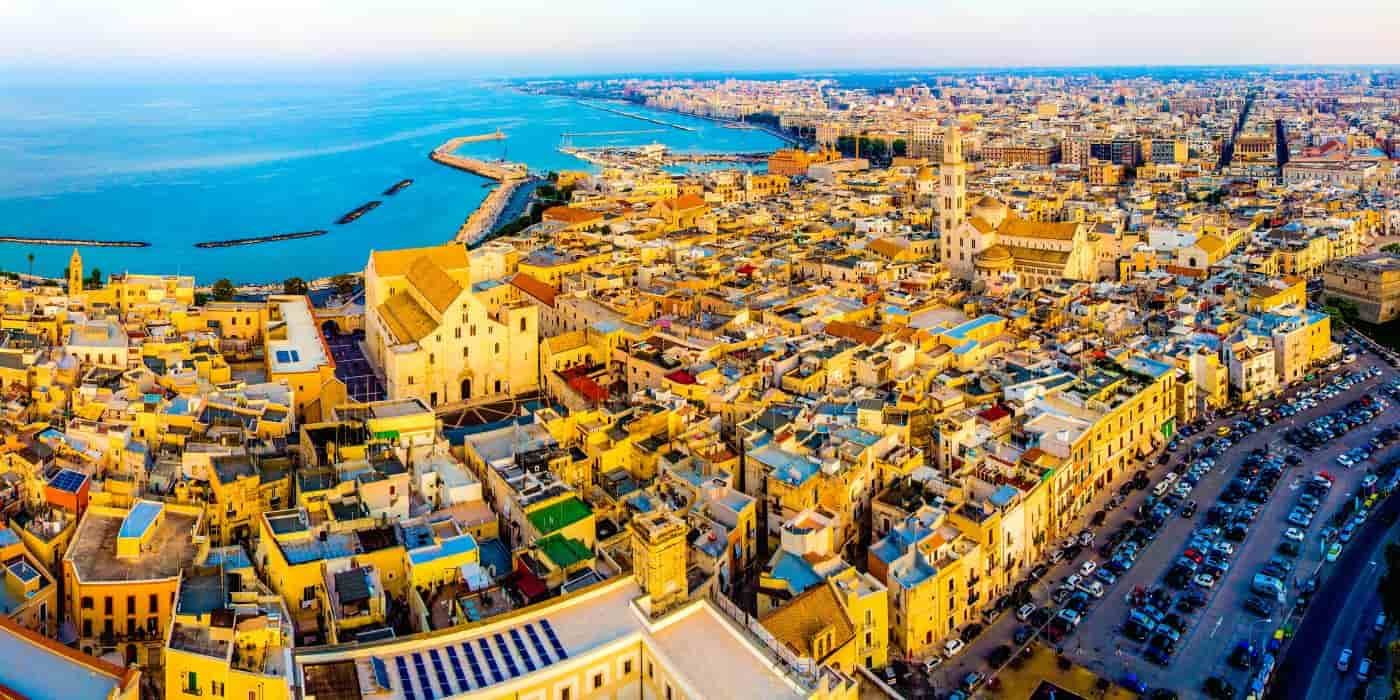

Stella Chirulli
The Barese dialect is a language in itself: learn the most commonly used expressions in everyday life and start your journey of discovery in Bari